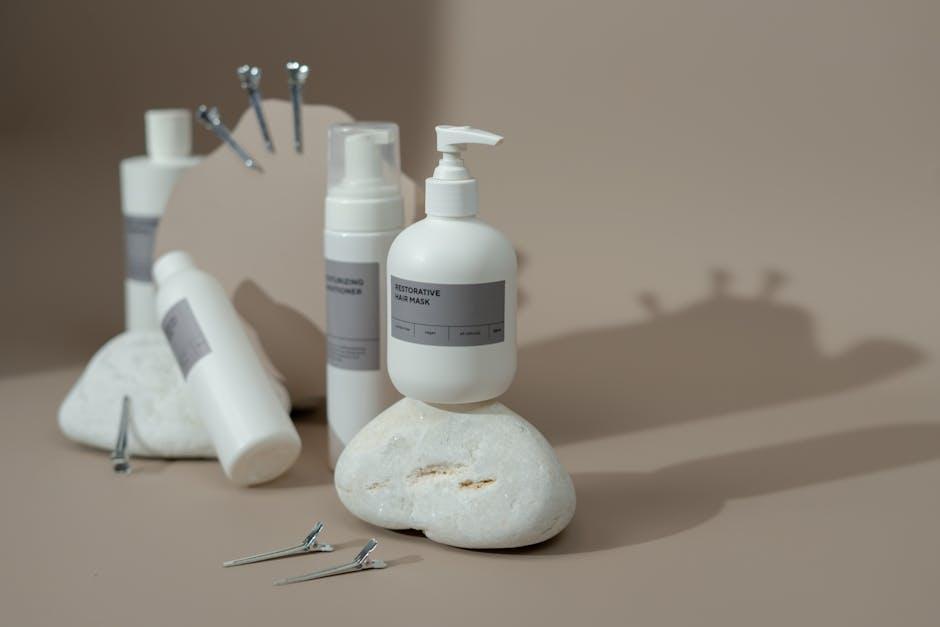In the quest for flawless skin, we often find ourselves navigating a labyrinth of serums, creams, and elixirs, each promising a radiant transformation. Yet, beneath the glossy allure of these bottles lies a paradox: could the very rituals we cherish be the culprits behind our skincare woes? As we delve into the world of beauty regimens, it becomes imperative to question the efficacy and safety of our daily routines. With expert insights and scientific scrutiny, this article unravels the complexities of skincare, challenging the myths and misconceptions that might be doing more harm than good. Prepare to uncover the hidden truths that lie beneath the surface and discover how to truly nurture your skin.
Unveiling the Hidden Dangers Lurking in Your Skincare Products

When it comes to skincare, most of us are focused on achieving that coveted glow, but few consider the potential risks hidden within their daily regimen. Parabens, phthalates, and synthetic fragrances are just a few of the culprits that might be undermining your skin’s health. These ingredients, commonly found in many beauty products, are known to disrupt hormonal balance and may lead to long-term health issues. It’s crucial to scrutinize the labels and be mindful of what you’re applying to your skin.
- Parabens: Often used as preservatives, these can mimic estrogen and disrupt hormone function.
- Phthalates: Found in synthetic fragrances, they are linked to reproductive and developmental issues.
- Synthetic Fragrances: These can cause allergic reactions and may contain undisclosed chemicals.
By opting for natural and organic products, you can minimize these risks and ensure that your skincare routine supports rather than sabotages your skin’s health. Remember, informed choices lead to radiant skin!
Decoding Ingredient Labels for a Healthier Complexion
Understanding what goes into your skincare products is essential for maintaining a healthy complexion. Many skincare products are filled with ingredients that may do more harm than good. Here’s a quick guide to help you decipher those often confusing labels:
- Parabens: Commonly used as preservatives, these can disrupt hormone function and are best avoided.
- Sulfates: Often found in cleansers, they can strip the skin of natural oils, leading to dryness and irritation.
- Fragrances: Added for scent, they can cause allergic reactions and are not necessary for effective skincare.
- Alcohols: While some are beneficial, like fatty alcohols, others such as denatured alcohol can dry out and damage the skin.
For a healthier complexion, consider products that highlight natural and organic ingredients. Look for labels that proudly feature:
- Antioxidants: These help protect the skin from environmental damage.
- Hyaluronic Acid: Known for its hydrating properties, it helps maintain moisture levels.
- Natural Oils: Ingredients like jojoba and argan oil nourish and repair the skin barrier.
Expert-Approved Adjustments for a Safe and Effective Routine
To ensure your skincare routine is both safe and effective, consider integrating these expert-approved adjustments. First, simplify your product lineup. Using too many products can overwhelm your skin and lead to irritation or unexpected reactions. Stick to the essentials: a gentle cleanser, a hydrating moisturizer, and a broad-spectrum sunscreen. For those with specific skin concerns, such as acne or hyperpigmentation, introduce targeted treatments one at a time to monitor how your skin responds.
- Patch test new products: Before fully incorporating a new product, apply a small amount on a discreet area to ensure your skin doesn’t react adversely.
- Understand ingredient interactions: Be cautious of mixing ingredients like retinol and vitamin C, which can cause irritation if not used correctly.
- Adjust based on skin type and environment: Your skin’s needs can change with the seasons or due to hormonal shifts. Stay attuned to these changes and adapt your routine accordingly.
Moreover, consult with a dermatologist regularly to tailor your skincare routine to your unique skin needs. They can provide guidance on the appropriate concentration of active ingredients and suggest alternatives if your current regimen is too harsh. By making these informed adjustments, you can foster healthier, more resilient skin.


